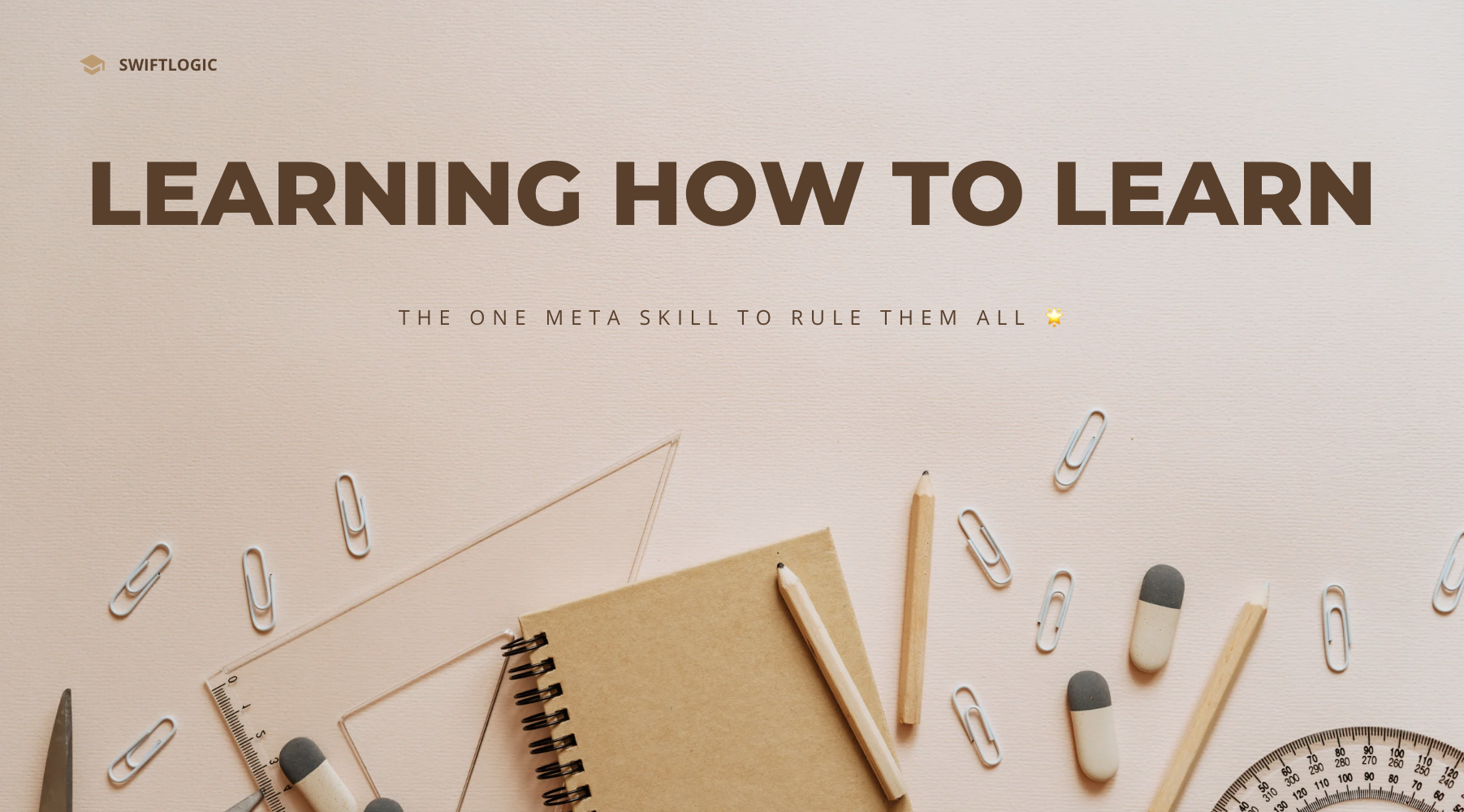Learning How to Learn Technical Things
There is only one constant in the tech world, and it’s called change. As software engineers we are fortunate enough to live in a dynamic world where every component is in constant motion, there’s always something new, a better paradigm or process of doing things. Therefore, learning how to learn is perhaps the most important meta-skill any software engineer can hone. It unlocks a world of opportunities beyond what any credentials or certifications can give us.
Whether it’s trying to stay up-to-date with the latest advancements or simply acquiring skills for side projects and better compensation. Learning how to learn is crucial for both personal and professional growth. So how do we do it? Well, for most of us simply skimming through theoretical knowledge is not enough. To truly master a new technology, we need to adopt a comprehensive approach that involves indexing, retaining, referencing, and applying your knowledge through project-based learning. In this blog, we will explore a step-by-step guide on how to learn technical things in software engineering effectively.
Step 1: Indexing and Organizing Knowledge [Map out the New World]

When embarking on a journey to learn a new technology, start by building a solid foundation of knowledge. Create an index of concepts, terminology, and key points related to the technology. This can be in the form of a personal wiki, a note-taking tool, or even a physical notebook. Make sure to organize the information logically, categorizing it into sections and subtopics. Indexing will enable you to have a quick reference point whenever you need to refresh your memory or clarify a specific concept.
During this phase, focus on gaining basic understanding of the technology, familiarizing yourself with its key concepts, terminologies, and use cases. Again to reiterate, make sure you create an index or a knowledge repository where you can compile and organize the essential information you gather. The end goal in this phase is really to get a high level overview of the Whats and Hows. For example What is x, What problem does x solve for us, and How does x solve this problem.
Step 2: Retaining: [Time to Practice]:

Once you have a grasp of the basics, it’s time to delve deeper and retain the knowledge. Remember that old adage practice makes perfect? Well it’s time to put that to the test. Revisit the resources you explored during the indexing phase and engage with them more actively. Take comprehensive notes, summarize key points in your own words, and highlight the most critical aspects. Practice active recall by testing yourself with quizzes or discussions. Additionally, employ spaced repetition techniques to review and revise the material at regular intervals. This aids in long-term retention and prevents information overload. But above all start deploying the concepts through project-based learning. For instance, If it’s a backend stack, build an app that utilizes that stack and deploy all of the concepts you’ve learned to complete your project. This is really where a lot of magic happens, where the true mastery begins.
Step 3: Referencing: Utilizing Curated Sources

As you delve deeper into the technology, you will encounter challenges and questions. Knowing how to find reliable resources is essential for continuous learning. Identify reputable courses, youtube channels, books, documentation, forums, online communities, and expert blogs that can provide valuable insights and answers to your queries. As you discover these reputable sources, add them to your index. We want to build our index into a powerful knowledge resource. By referencing these high-quality resources, and continuously updating your index, you will develop a deeper understanding and gain different perspectives on the technology.
Step 4: Applying Knowledge through Project-Based Learning:

To truly master a new technology, practical application is key. This is why learning by doing is a fundamental aspect of mastering technical skills in software engineering. Project-based learning allows you to apply your knowledge in real-world scenarios, helping you solidify your understanding and uncover practical challenges. Start by choosing a project that aligns with your interests and utilizes the technology you are learning. Break down the project into manageable tasks and milestones. As you work on the project, you will encounter obstacles that will push you to research, experiment, and find solutions independently, lucky for you, you’ve already been indexing a list of reputable sources that will help you do just that. This process will enhance your problem-solving skills and deepens your understanding of the technology even more. Do not skip this part under any circumstance.
Step 5: Feedback and Collaboration - Learning from Others:

Learning is not meant to be a solitary endeavor, or at least it shouldn’t be if you truly want your new knowledge to stick. Seek feedback from peers, mentors, or online communities specializing in the technology you are learning. Engage in discussions, share your progress, and seek constructive criticism. Collaborating with others who are also learning or have expertise in the field can provide fresh perspectives, insights, and alternative approaches on how to do things.
Step 6: Continuous Improvement and Iteration:

As you can see learning technical skills is an ongoing never ending process. And you need to regularly reflect on your progress, identify areas for improvement, and set goals for further development. Even with that don’t forget to Celebrate your achievements and acknowledge the milestones you have reached. Continually update your indexed knowledge, incorporating new insights and best practices. Iterate through the process, engaging in a cycle of learning, applying, reflecting, and refining.
By maintaining this growth mindset and embracing lifelong learning, you will continually enhance your technical skills as a software engineer.
Hope you found this little article helpful, this systematic approach to learning has been a life changer for me. Thanks for reading
